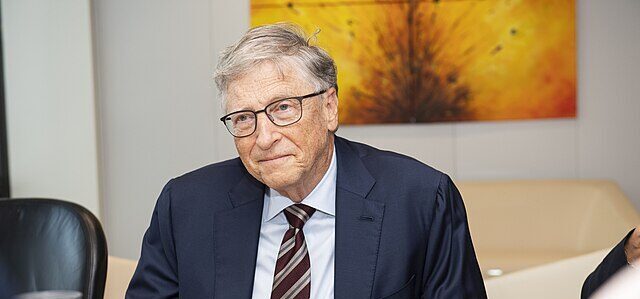Elise Westhoff is stepping down from the helm of the conservative Philanthropy Roundtable, the group announced Monday afternoon.
“I have young children and the last three years have been truly wonderful, but being a CEO is intense. There is a lot of travel involved and a lot of time and passion and dedication. I have poured my whole heart into the Philanthropy Roundtable for the last three years. I came to the realization with my family that I needed to pour my whole heart into them for some time” she says. “It’s been a difficult and emotional decision, but I know it’s the right one.”
Westhoff says she got the most joy from the group’s community of donors and the team she assembled at the Roundtable. “The people around me during my last three years are people that will be lifelong friends,” she says. “I will treasure my time with each one of them.”
Richard Graber, the Roundtable’s chairman and CEO of the conservative Bradley Foundation, had only high praise for Westhoff. “Elise has been a tremendous leader, the leader that we thought she would be when we hired her three years ago. She’s done a fantastic job,” he said. “We’re disappointed that she’s leaving, but, boy, we’ve got to respect and honor her decision to devote more time to her young family.”
On June 1, Christine Herrera, the group’s senior vice president of policy and programs, will become the interim CEO while the board searches for a permanent leader. Graber expects the search to take several months, if not longer.
Westhoff, whose last day will be May 31, took over the organization from longtime CEO Adam Meyerson in June of 2020 as the group was shifting direction. One of the key concerns, according to Graber, was the composition of the membership. At the time, 90 percent of its members were foundations, but more and more individuals were choosing to donate money without setting up foundations. The group wanted to appeal to more of those donors.
Westhoff achieved that goal, he says. Now 35 percent of the Roundtable’s members are individual donors and 65 percent are foundations, says Graber. “She was an incredibly hard worker. She’s persuasive. She made the case donor by donor that the Roundtable could be a resource that could help guide their resources in effective ways,” he says. “Obviously, it has been working well.”
Westhoff says that her efforts to raise the group’s public profile through sometimes controversial opinion articles and public appearances has appealed to the values that these individual donors share, which has attracted them to the group. It has also built out a program team with grant-making expertise that can advise members on groups they may want to support and how best to do that.
Provocative Approach
Westhoff set a different tone than her predecessor. Meyerson generally stayed out of the spotlight and took more of a big-tent approach to philanthropy, in part so groups with different ideologies could work together on important policy issues they might agree on. From her early days with the group, Westhoff took hard stands against progressive philanthropy and what she called cancel culture. She wrote that racial and social justice were a “a cover for tearing some people down as much as lifting others up.” Westhoff often criticized what she calls “woke philanthropy.” She said that donors risked being shunned and shamed if they didn’t fund progressive groups bent on dismantling systemic racism. At a Heritage Foundation event, she said, “If ‘woke culture’ is a cancer, philanthropy is the source of the infection.”
Some longtime members left the group in protest over the statements. But many more have joined since then, according to the Roundtable.
In April of this year, Westhoff co-authored an opinion article in the Chronicle with Darren Walker, president of the Ford Foundation; Sam Gill, CEO of the Doris Duke Foundation; and other philanthropic leaders calling for civil debate and philanthropic pluralism. It would be tempting to see this as an about-face for Westhoff, who criticized Ford and other progressive grant makers early in her tenure. The op-ed has generated ongoing debate from both supporters and people who question the article’s ramifications.
Westhoff sees that collaboration as a continuation of her earlier, more pointed messages. “We need to have an open, honest dialogue about really difficult issues that we’re facing as a society. And we need to criticize ideas in a way that’s respectful,” she says. “I don’t have any regrets about anything I’ve written or said. I think it’s all consistent.”
“In the philanthropy world, we are here to solve problems. We are here to find the best ways to tackle some of the most challenging and difficult issues that are facing our society,” she continues. “We’re not here to virtue signal. We’re here to have tough conversations and to find the best ways to uplift communities and empower individuals to achieve their potential. And that requires having tough conversations and being able to then break bread at the end of the day.”
Westhoff has also championed the group’s True Diversity campaign — she lists it as among her biggest accomplishments as CEO. The campaign advocates for viewing diversity not by gender and race or religion but by viewpoint, which avoids addressing race when it comes to diversity. Westhoff says that she is proud that the group has been able to be a leader on this issue.
“In my view, it’s been a very refreshing approach to a tough issue,” Graber says.
Phil Buchanan, president of Center for Effective Philanthropy, often sparred with Westhoff. He hopes the Roundtable’s next leader will take a different tack.
“It’s my hope that they find a leader who can work productively across difference and seek understanding and that the organization finds a leader who understands that conservatism doesn’t have to mean denying the existence of systemic inequities or sowing division based on race or other identity,” he says. “That’s my hope for the organization.”
Increased Donations
The real proof of Westhoff’s effectiveness as a leader is the health of the organization, says Les Lenkowsky, a co-founder of Institute for Educational Affairs, which later became the Roundtable, and a professor emeritus at Indiana University. Does it have more members, and how are its finances? Perhaps taking on “woke philanthropy” helped to draw more people into the organization.
But that is hard to judge independently. Graber says that membership is up, but the group does not disclose its members so there is no way to judge that. Informational tax returns are only available through 2020, the year Westhoff started at the organization. She says that contributions increased by 25 percent during her first two years and that the group expects 2023 to be another record-breaking year.
Graber says that the board is not looking for someone to take the group in a new direction but a leader who will continue where Westhoff has left off.
Credit:Source link



